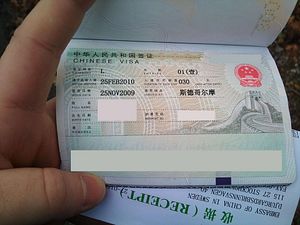Canadians of Hong Kong descent now have another consideration when traveling to China. Late last month two teenagers born and raised in Canada were denied 10-year visas to China based on the fact that their parents were born in Hong Kong. Perhaps more alarmingly for the hundreds of thousands of Hongkongers who have fled to the safe harbor of Canada, and other democracy-friendly nations, the teens were told that they must travel to China as Chinese nationals.
These are not standalone cases either. Hong Kong Chinese language media have reported that a number of first generation Canadians, who were born in Hong Kong, are being forced into the same situation; and the Hong Kong-born, Australian author of this article has also experienced the same treatment by Chinese visa authorities.
Ottawa is now querying Beijing over these recent cases, and have asked China to clarify any changes they have made to visa requirements and migration laws. Canadian Member of Parliament Jenny Kwan, who was born in Hong Kong, said she pressed Foreign Minister Stephane Dion, urging him to look into the visa situation.
“The change in practice should be of grave concern to Canadians; after all, a Canadian is a Canadian. As such, should all Canadians not be treated the same?” Kwan said.
The change would effectively mean that Canadian citizens traveling to China will no longer have the privilege of protection from the Canadian embassy.
As stipulated in Article 3 of China’s nationality law, China does not recognize dual nationality. This law naturally extended to Hong Kong citizens as per the 1996 pre-handover “Explanations” issued by the Standing Committee of the National People’s Congress. By extension, Article 5 of the nationality laws states that children of Chinese who have settled abroad “shall not have Chinese nationality.”
However, the reverse is also true under Article 8, which states any person who applies for naturalization as a Chinese national shall acquire Chinese nationality upon approval of their application — and shall not retain foreign nationality. That means that if these Canadians do indeed apply for Chinese citizenship to travel to Mainland China, then it could be argued that they are renouncing their Canadian nationality.
At a regular press conference in late June, Chinese Foreign Ministry spokesperson Hong Lei responded to questions about the situation, stating that the visa reciprocity arrangement reached by the Chinese Foreign Ministry and the Canadian Embassy in China on February 28, 2015, would be strictly adhered to, and that both countries would issue multi-entry visas, valid for up to 10 years, to each other’s citizens for the purposes of business, tourism, and family visits.
Hong stressed that China has been acting in strict accordance with the reciprocity arrangement and that reports about China making adjustments to or tightening its policy were not true:
We handle visas, travel documents, and passports applications by Chinese citizens from Hong Kong in accordance with the Basic Law of the Hong Kong Special Administrative Region of the People’s Republic of China (PRC), the Nationality Law of the PRC and the Interpretation by the Standing Committee of the National People’s Congress on Some Questions Concerning Implementation of the Nationality Law of the PRC in the Hong Kong … As for what will be granted in the end, it is based on the personal information about the applicant and related documents. Since the Chinese government resumed its exercise of sovereignty over Hong Kong, the Chinese Foreign Ministry has been asking its overseas diplomatic missions to offer all-out services and assistance to Chinese citizens from Hong Kong living in foreign countries in accordance with the law, facilitating their travel, work and stay in all parts of the world.
This statement raises a few concerns of its own. The stress on “Chinese citizens from Hong Kong living in foreign countries” seems to dance around the question of the nationality of ethnic Chinese Canadians, or ethnic Chinese from any other nation for that matter. It can also easily be misconstrued, misinterpreted, or reinterpreted to any other number of meanings.
For now, those concerned can refer to Article 10 of the nationality laws: Chinese nationals who meet certain conditions may renounce Chinese nationality upon approval of their applications.
































